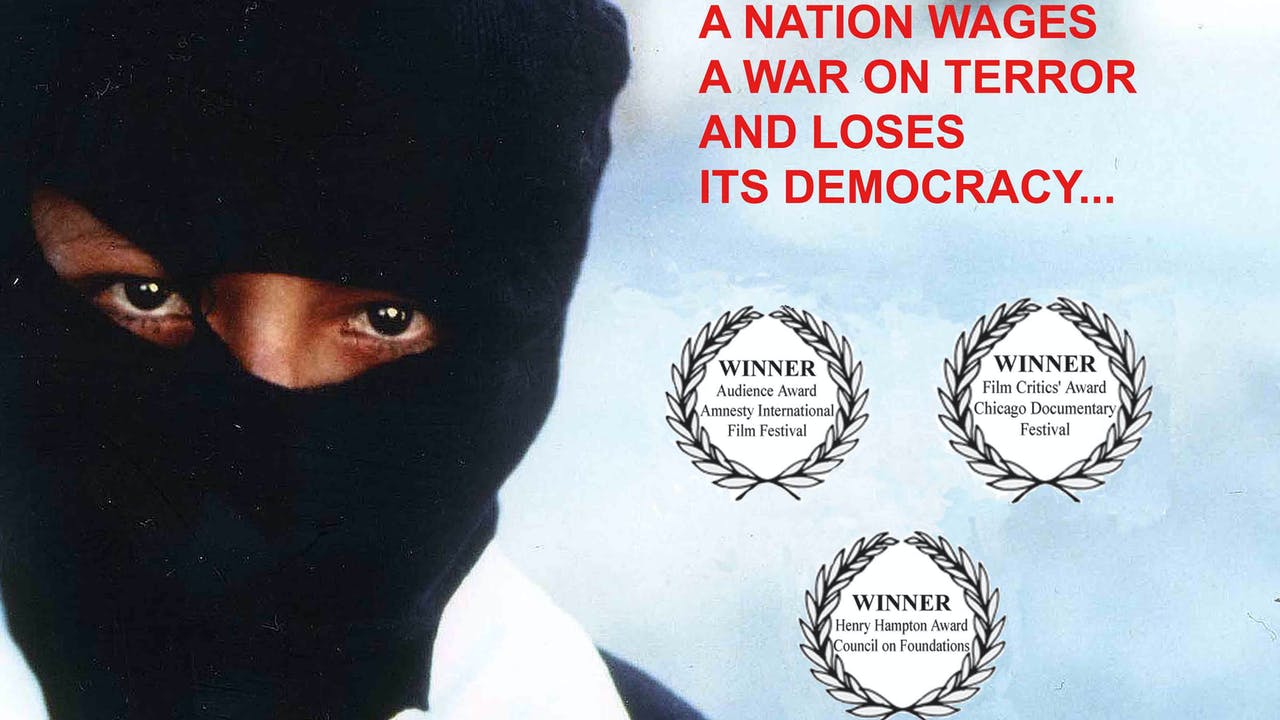By Chlotrudis Independent Film Society
Rating: 5 cats
Director: Paula Yates

Country: peru, united_states
Year: 2005
Running time: 94
IMDB: http://www.imdb.com/title/tt0485046/combined
Bruce says: “As political documentaries go STATE OF FEAR is absolutely compelling and nearly perfect. Using the twenty year
reign of terror in Peru from 1980-2000, director Pamela Yates explores how terrorism in Peru led to the erosion of democracy. Interviewing people from every walk of life, a unique picture of a stressed out, torn apart country is presented to the viewer. Yates performs her task of reviewing complicated social and political events with amazing clarity and translates complex incidents into understandable ’cause and effect’ progressions.
“Abimael Guzman began a social movement in 1980. He first rallied students to his cause then took his revolutionary thoughts to the peasants in the hills with the idea that a peasant revolt could strangle the food supply to Lima, crippling the nation and toppling the political regime. His revolutionaries operated under the name Shining Path. Many terrorist acts were attributed to Shining Path and all of Peru was uneasy. For years, people in Lima didn’t seem to care even when they saw photographs of the horrors of the countryside. That all changed in 1990 when the battleground finally moved to Lima a city of eight million.
“The police foolishly began to round up suspects and, innocent or not, they all ended up in the same cellblocks. Many of these innocent young people joined Shining Path while incarcerated. Shining Path began kidnapping young children and turning them into soldiers. The Army, in turn, gave Indians in the mountain areas guns to fight Shining Path. Almost everyone in Peru had an enemy to fight, people to hate. In 1993 Alberto Fujimori became head of state. Using the media as his propaganda machine Fujimori completely dismantled the rules of law in the interest of combating terrorism. No one opposed him. Congress was dissolved; due process was abandoned. People appeared in trials before hooded judges.
“As time passed Fujimori became totally corrupt. He aligned himself with Vladimiro Montesinos, a Peruvian mobster. Peru became a dictatorship and police state. Through the grass roots efforts of many human rights groups, public awareness was finally achieved. Videotapes of payoffs at every level of the media were the undoing of the regime and Fujimori fled to Japan. To help understand what had transpired in their country the people set up a Truth Commission to report on the events over the
two decades of terror and military brutality. Today Montesinos and Guzman remain in prison. Sadly, the current president has done little to punish those in the military who committed the atrocities.
“Yates interviews many involved in the human rights organizations, the military, and police; government officials; photographers who covered the brutalities; students who supported Shining Path; those who had been kidnapped and forced into becoming soldiers before their teen years; and those who had been raped and tortured by the military. The extraordinarily
moving stories are vivid reminders about the precarious nature of democracy. 5 cats”
